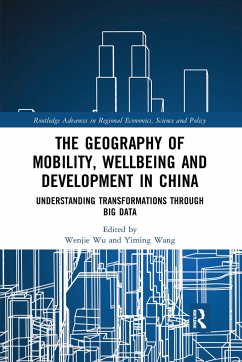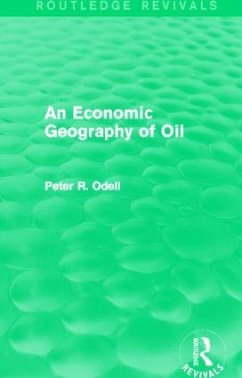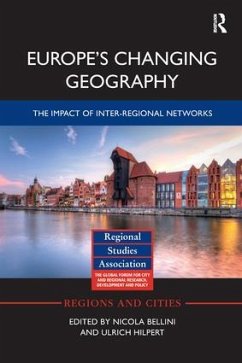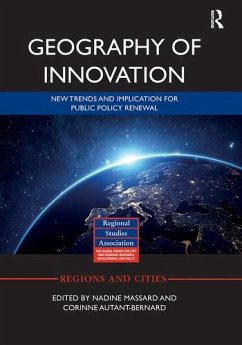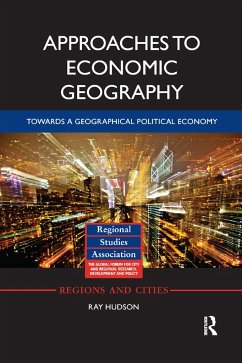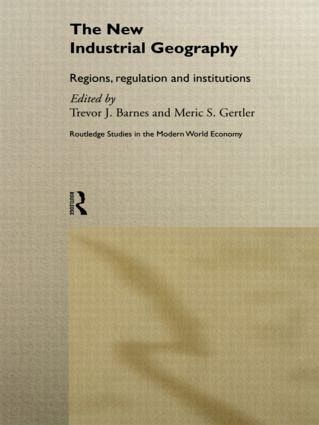
The New Industrial Geography
Regions, Regulation and Institutions
Herausgeber: Barnes, Trevor; Gertler, Meric S

PAYBACK Punkte
30 °P sammeln!
Drawing on the theoretical resources of institutional economics, The New Industrial Geography opens new perspectives in economic geography. In its focus on historical and geographical context, institutional embeddedness, and tacit rules and formal regulations, institutional economics is shown to be the perfect basis for understanding the profound economic and geographical changes of the last two decades, and on which also to build a new kind of industrial geography. Issues covered include: the retheorization of the geography of industrial districts; the analysis of institutional 'thickness', a...
Drawing on the theoretical resources of institutional economics, The New Industrial Geography opens new perspectives in economic geography. In its focus on historical and geographical context, institutional embeddedness, and tacit rules and formal regulations, institutional economics is shown to be the perfect basis for understanding the profound economic and geographical changes of the last two decades, and on which also to build a new kind of industrial geography. Issues covered include: the retheorization of the geography of industrial districts; the analysis of institutional 'thickness', and the economic-geographical effects of institutional rigidity and sclerosis; the economic-geographical consequences of new regulatory bodies and policies; and the geographically situated character of institutions and regulatory frameworks, and the effects of separating them from their originating context; the development of new strategies for achieving more equitable forms of regional development.






